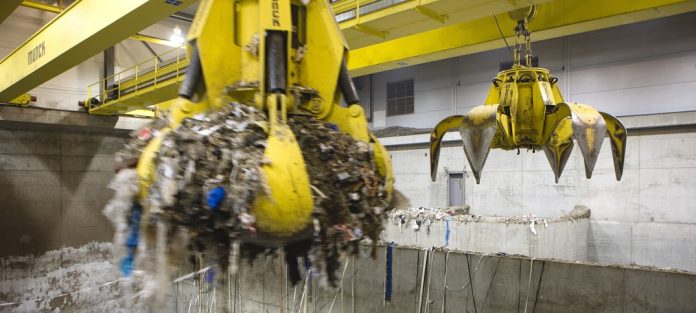The need for more energy has become the main reason for removing national taxes on waste incineration in Scandinavia. Regardless of the political motivation, reducing taxation in the Nordics will help to limit landfilling in Europe.
According to the European Commission, a whopping 52 million tonnes of European household waste went to landfill in 2020. In some countries in the EU, the proportion is calculated to be as much as 60 per cent of total household waste. This waste is buried on waste sites around the continent, a disposal which over time is polluting soil and water, and leads to the emissions of methane gas.
It is a fact that much of the residual waste that is landfilled today – waste that for various reasons cannot be recycled – could have been used for energy recovery. But incineration of residual waste has for long been perceived as an unattractive alternative by environmental authorities and environmentalists across Europe, and increasingly so in Scandinavia.
In Scandinavian countries, where landfilling of household and commercial waste is prohibited, there has for long been an ambition to steer the market towards reduced emissions and a higher use of waste as feedstock. This has resulted in the introduction of incineration taxes in both Sweden, Norway and Denmark, a much-discussed move in the waste industry.

The Swedish incineration tax was introduced in April 2020, and constituted a cost that came on top of the EU ETS quotas scheme that Swedish energy recovery plants already are a subject to. The consequence is that the cost of creating energy from residual waste in Sweden today is high compared to most other EU nations.
In retrospect, the introduction of the tax has met strong criticism. Much of this is due to a lack of positive environmental effect, the rising prices for consumers and a reduction in investment within the industry – points the Swedish Tax Agency have concluded on in a recent report.
However, the Swedish „warnings“ have not prevented the Norwegian authorities from introducing a corresponding, Norwegian incineration tax which came into force early in 2022. The tax currently amounts to about Euro 20 per tonne of CO2, or around Euro 10 per tonne of waste that is incinerated.
Denmark – in addition to the ETS requirements – also has a national CO2 tax as well as a separate waste tax affecting the market of energy recovery.
A change in opinion
But before the ink is dry and the tax introduced, tax on energy recovery appears to be gathering political resistance. If there is one thing that surpasses the desire for less waste incineration, it seems to be the desire for more and affordable energy. The crisis in Europe, mostly caused by the war in Ukraine, has not only proven how exposed we have become in terms of energy, but also that there is a large and unused potential in efficient waste incineration.
Recently, the Swedish government put forward a proposal to remove the country’s incineration tax, just two years after it was introduced. The argument is precisely to create better conditions for producing more (and cheaper, most likely) electricity. On the Norwegian side of the border, Climate and Environment Minister Espen Barth Eide is also intent on removing the tax his party recently voted for – but insisted they were against. The premise is that this tax is replaced by another tax, preferably higher up the value chain.
Whether this change in attitude is more related to expensive electricity and angry voters than to sustainability, one can only speculate. In any case, there is little doubt that lower direct taxation of waste incineration, especially in Scandinavia, will have a positive overall effect on the environment. In the longer term, it will reduce European landfilling because it will be cheaper to utilize more of the residual waste for energy recovery in the most efficient facilities in Europe, rather than sending it to landfill.
The fact that Germany is moving in the opposite direction with the introduction of a new tax on incineration next year, just emphasizes how uncoordinated the EU nations are in this matter.
Less waste – more recycling
The development and use of more modern, cleaner and efficient energy recovery facilities will make energy production from residual waste more sustainable in time. In the short term, scrapping the tax could mean a significant increase in the production of electricity in Scandinavia, which will probably also be reflected in electricity prices.
Nevertheless, the key to a more sustainable world is all about the introduction of a well-functioning circular economy where there are significantly smaller volumes of residual waste, and substantially more reuse and material recycling. This effort must not be limited due to the high and temporary electricity and gas prices.
But before we can achieve our circular goals we must make use of the most sustainable solutions available for energy production – which energy recovery represents today.
By CEO at Geminor, Kjetil Vikingstad
Source: Geminor





